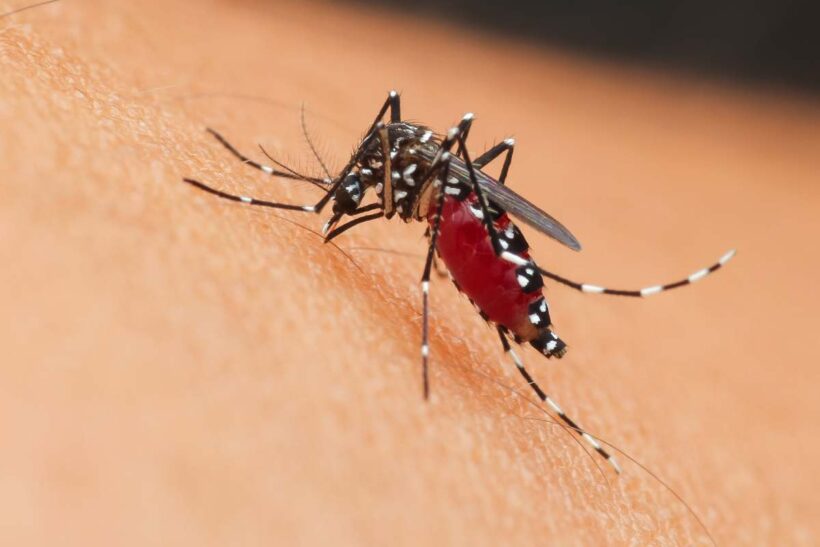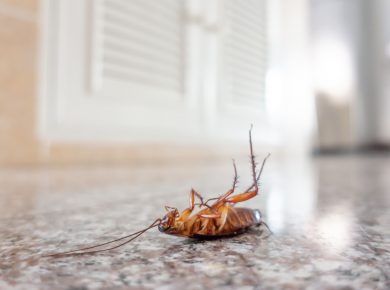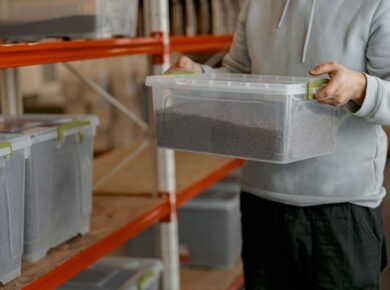If you feel like mosquitoes target you more than others, you could be right. Research indicates that about 20% of individuals are especially attractive to these insects.
Mosquitoes might prefer to bite you due to factors such as your blood type, the clothing you wear, your breath, or even the bacteria present on your skin. These elements can all influence how appealing you are to mosquitoes.
Related article:
How Do Mosquitoes Find Their Targets?
Mosquitoes, those pesky summertime companions, have a surprisingly sophisticated arsenal of sensory mechanisms to zero in on their targets. Understanding how these tiny bloodsuckers find us can help us better protect ourselves from their itchy bites.
Carbon Dioxide (CO2)
One of the primary ways mosquitoes locate their targets is through carbon dioxide. When we exhale, we release CO2, creating a trail that mosquitoes can detect from up to 150 feet away. Mosquitoes possess specialized receptors designed to pick up on these carbon dioxide emissions, effectively guiding them towards potential sources of blood – namely, us.
Body Odor
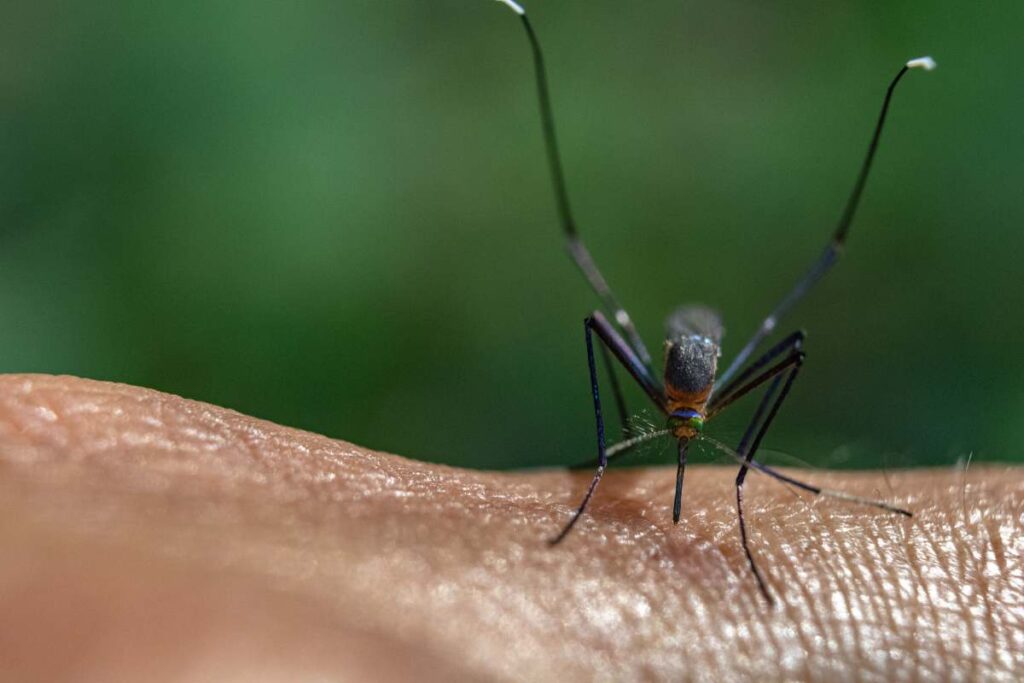
Beyond carbon dioxide, our skin emits a cocktail of chemicals and odours that mosquitoes find irresistible. Compounds like lactic acid and ammonia, present in our sweat, act as beacons for these insects. Moreover, the bacteria living on our skin can produce additional scents that attract mosquitoes, making some individuals more appealing targets than others.
Heat and Moisture
Mosquitoes are also adept at detecting body heat and moisture. The warmth emanating from our bodies and the moisture produced by our sweat glands provide additional signals that help mosquitoes pinpoint their victims. This sensitivity to heat and humidity allows them to locate us even in dim light or darkness, ensuring no outdoor evening remains entirely mosquito-free.
Colour and Movement
While primarily guided by chemical and thermal cues, mosquitoes also utilize their vision to aid in locating a meal. They are particularly drawn to dark colours and movement. This explains why individuals clad in dark clothing or engaged in vigorous outdoor activities often find themselves swatting away more mosquitoes than their lighter-dressed and less-active counterparts.
Understanding these sensory preferences can inform strategies to minimize mosquito bites. For instance, wearing light-coloured clothing and minimizing physical activity during peak mosquito times can reduce your attractiveness as a target. Additionally, using repellents that mask the scents mosquitoes find attractive or disrupt their ability to detect carbon dioxide can provide effective protection.
Why Are Some People More Attractive to Mosquitoes?
Mosquitoes are notorious for their selective biting habits, and understanding why some individuals are more attractive targets than others involves delving into several key factors.
Genetics
One significant reason some people are more prone to mosquito bites lies in their genetic makeup. Individuals inherit a specific combination of chemicals that their bodies emit, which can either attract or repel mosquitoes.
Research has highlighted the role of genetics by comparing the biting tendencies of identical twins (who share identical genes) with non-identical twins. Identical twins tend to receive similar numbers of mosquito bites, indicating a strong genetic influence on attractiveness to mosquitoes.
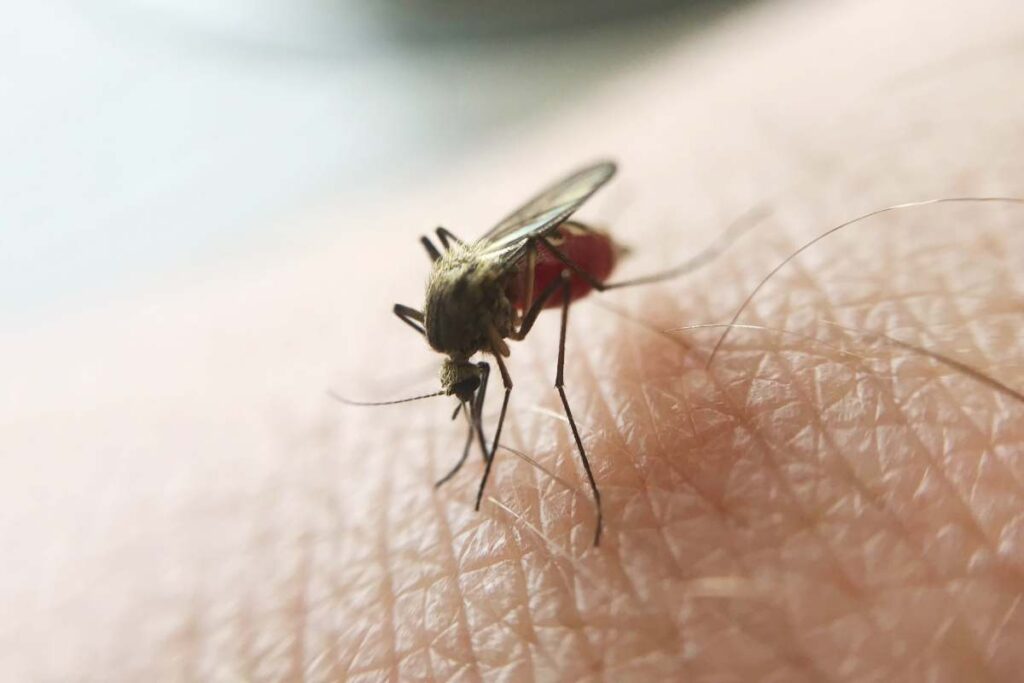
Blood Type
Another genetic factor that influences mosquito preference is blood type. Studies have shown that mosquitoes are more attracted to individuals with Type O blood compared to those with Type A, B, or AB blood types. This preference is attributed to the different chemicals that are secreted through the skin based on blood type.
Mosquitoes can detect and are drawn to these chemical cues, making certain blood types more likely to be bitten.
Pregnancy
Pregnant women often find themselves swatting away more mosquitoes than usual, and this heightened attraction is not merely anecdotal. Pregnant women exhale more carbon dioxide (CO2) due to increased metabolic rates, and they also tend to have slightly higher body temperatures.
Both of these factors—elevated CO2 levels and higher body heat—are known to attract mosquitoes. As a result, pregnant women become more attractive targets for these blood-seeking insects during their gestational period.
Alcohol Consumption
Enjoying a drink outdoors may make you more than just relaxed—it can also make you more appealing to mosquitoes. Alcohol consumption increases the amount of ethanol excreted in sweat, which serves as an additional attractant for mosquitoes.
Furthermore, alcohol can elevate body temperature, another factor that enhances an individual’s attractiveness to mosquitoes. This dual effect of ethanol secretion and increased body heat explains why individuals who have been drinking may experience more mosquito bites.
Practical Tips to Avoid Mosquito Bites
Protecting yourself from mosquito bites is crucial, especially in regions where these insects can transmit diseases like malaria, dengue fever, and Zika virus. Here are practical tips to minimize your risk:
1. Use Repellents: Insect repellents are highly effective in warding off mosquitoes. Look for products containing DEET, picaridin, or oil of lemon eucalyptus, as these ingredients have been proven to deter mosquitoes effectively. Apply repellent to exposed skin and clothing before heading outdoors, and reapply as directed, especially if you’re sweating or swimming.
2. Wear Light-Colored Clothing: Mosquitoes are naturally attracted to dark colours, as they stand out more against natural backgrounds. Opt for light-coloured clothing, which makes you less visible to mosquitoes. Long sleeves, pants, and socks can provide additional protection by minimizing exposed skin.
3. Stay Indoors During Peak Hours: Mosquitoes are most active during dawn and dusk. If possible, limit outdoor activities during these times to reduce your exposure to biting insects. If you must be outdoors, consider wearing long sleeves and pants, and apply insect repellent as an added precaution.
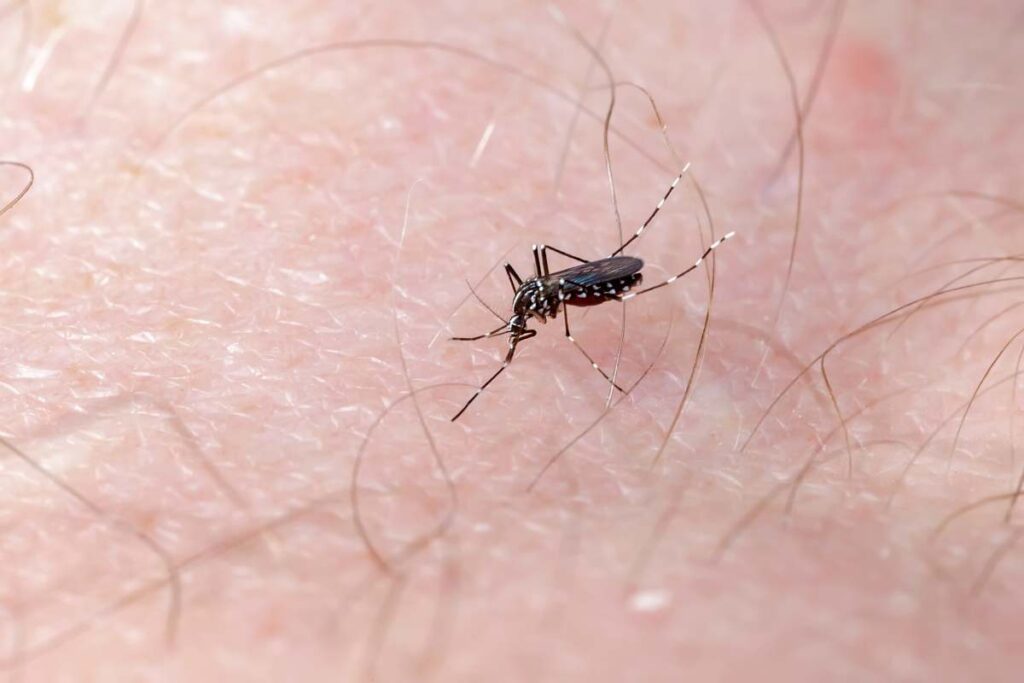
4. Eliminate Standing Water: Mosquitoes breed in stagnant water, even in small amounts. Regularly check your surroundings for potential breeding sites such as flower pots, bird baths, clogged gutters, and puddles. Empty, clean, or cover these sources of standing water to deprive mosquitoes of breeding grounds near your home.
5. Use Mosquito Nets: For sleeping areas, especially in regions where mosquito-borne diseases are prevalent, use mosquito nets treated with insecticide. Ensure the net is properly tucked in and does not have any holes that mosquitoes could enter through. This provides a physical barrier that prevents mosquitoes from reaching you while you sleep.
6. Wear Protective Clothing: In addition to choosing light-coloured clothing, consider wearing loose-fitting garments that cover as much skin as possible. This reduces the amount of exposed skin that mosquitoes can target. Tucking pants into socks and shirts into pants can further minimize access points for mosquitoes.
7. Consider Outdoor Repellents: When spending time in outdoor areas like patios or campsites, use mosquito coils, citronella candles, or other outdoor repellents. These products emit odours that mosquitoes find unpleasant, helping to create a protective barrier around your immediate area.
8. Keep Windows and Doors Screened: Ensure that windows and doors in your home are equipped with screens that are intact and properly fitted. This prevents mosquitoes from entering indoor spaces while allowing for ventilation. Repair or replace damaged screens promptly to maintain their effectiveness.
9. Be Aware of Travel Risks: If travelling to areas where mosquito-borne diseases are endemic, research local health advisories and take appropriate precautions. Consult with healthcare providers about vaccines or medications that may be recommended for specific destinations.
Conclusion
Mosquitoes have a preference for certain individuals over others.
Factors such as wearing dark clothing, blood type, sweating, exhaling carbon dioxide, being pregnant, the bacteria on your skin, and consuming beer have all been identified by researchers as reasons why mosquitoes might find someone attractive.
To reduce your chances of mosquito bites, consider going indoors when you’re sweaty, taking measures to eliminate mosquito breeding spots in your yard, and using insect repellent regularly. These steps can help protect you from these pesky insects.
